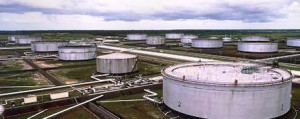Oil
Oil Experts laments Nigeria’s inability to utilise low oil Price opportunities

By Yemie ADEOYE
LAGOS-THE slash of petroleum industry budget and the rising debt of the Nigerian National Petroleum Corporation (NNPC) to its partners in the sector are not just a disregard to huge opportunities presented by the prevailing low price regime but also a drawback to realization of reserves and production targets in the sector.
According to the Chairman of the Petroleum Technology Association of Nigeria (PETAN), Mr. Emeka Ene, an eminent petroleum engineer, the low oil prices should have provided the government the opportunity to increase exploration and production activity in the industry at very low cost.
 He pointed out that policy drivers across the global petroleum industry have always seized the opportunity of low cost / price crash to drive exploration and development activities in the industry in order to build reserves and boost production.
He pointed out that policy drivers across the global petroleum industry have always seized the opportunity of low cost / price crash to drive exploration and development activities in the industry in order to build reserves and boost production.
According to him, Middle East countries currently implement an average annual budget of $36 billion to drive exploration and production operations, riding on the low cost opportunity associated with the prevailing slump in prices.
He said the best way to tackle low price regime across the world is to boost production to recover the cash drop with higher volumes of output.
Industry analyst, Mr. Kazeem Bello, said the government’s failure to take cushioning measures against volatility risks by implementing fiscal buffers and hedging mechanisms, left the country at the mercy of the crisis.
He pointed out that Saudi Arabia, Kuwait and the United Arab Emirates hold over $2 trillion in Sovereign Wealth Fund (SWF) accounts which they now deploy to protect their economies against the prevailing oil crisis.
But in Nigeria, the industry encountered the price headwind without any kind of ready countermeasure, and government’s response to the funding needs of the industry was limited to the worst option: slashing industry budget by 40 percent and rolling back work plans.
The budget cut pushed projects off the table, with several work programmes suspended or out rightly cancelled. Also, new projects that host job opportunities have been put off, leading to sharp drop in oilfield service activities.
The consequent drop in rig count signifies another devastating blow on the local oil service firms most of whose jobs revolve around drilling, a key activity that is central to exploration and field development programmes.
An idle rig means that its entire crew is idle while the rig company continues to run overhead costs on facilities and personnel. Ancillary service firms that specialize in well services, logging, air shuttle drilling fluids and chemicals, drill bits, casing services, marine vessels and others also suffer downtime and incur huge losses.
Oil
NNPC Targets 60% Methane Emission Reduction By 2031
The Nigerian National Petroleum Company Limited (NNPC) has unveiled a bold strategy to reduce methane emissions in the oil and gas sector by 60% by 2031, with an ultimate goal of achieving net-zero emissions by 2060.
This announcement reinforces Nigeria’s leadership role under the Global Methane Pledge initiative and its commitment to tackling climate change.
The Group Chief Executive Officer of NNPC, Mele Kyari, disclosed these plans during a meeting on Thursday with Robert Leahman, the U.S. State Department’s Global Methane Program Manager, and a delegation from Deloitte.
READ MORE: Atiku Gloats Over AUN’s Achievements Ahead Of 20th Anniversary
The discussions, held at the NNPC Towers in Abuja, focused on collaborative efforts to reduce methane emissions through innovative and sustainable practices.
“Reducing methane emissions is not just an environmental necessity but also a strategic imperative for Nigeria’s energy transition. We are leveraging partnerships to adopt global best practices and innovative solutions,” Kyari stated.
Key among these efforts is a pilot project in the Niger Delta, aimed at establishing emissions baselines, mitigating methane leaks, and promoting sustainable operations across Nigeria’s energy sector.
The project, a partnership between NNPC, Deloitte, and the U.S. Bureau of Energy Resources, will utilize data-driven methodologies to pinpoint and address methane hotspots.
Robert Leahman commended Nigeria’s proactive stance, describing it as a benchmark for other nations on the continent.
“Nigeria’s leadership under the Global Methane Pledge sets a standard for the continent. These initiatives will not only help reduce emissions but also drive sustainable development in the energy sector,” he said.
Kyari highlighted the broader benefits of addressing methane emissions, noting its significance for both environmental protection and economic efficiency.
“This collaboration is a game-changer. By addressing methane leaks, we’re reducing waste, saving costs, and protecting the environment. It’s a win-win for our economy and the planet,” he added.
Oil
FG Introduces New Incentives To Revitalize Nigeria’s Oil & Gas Industry
In a strategic move to revitalize Nigeria’s oil and gas sector, the Federal Government has unveiled two key fiscal incentives aimed at attracting investment and enhancing energy security.
The announcement was made by Mr. Wale Edun, the Minister of Finance and Coordinating Minister of the Economy on Wednesday.
The first initiative, the Value Added Tax (VAT) Modification Order 2024, introduces critical exemptions for essential energy products and infrastructure, including Diesel, Feed Gas, Liquefied Petroleum Gas (LPG), Compressed Natural Gas (CNG), Electric Vehicles, Liquefied Natural Gas (LNG) infrastructure, and Clean Cooking Equipment.
Read Also: Atiku Calls For Rotational Presidency Across Nigeria’s Geopolitical Zones
These exemptions are designed to reduce living costs for Nigerians, promote energy security, and accelerate the transition to cleaner energy alternatives.
The second initiative, the Notice of Tax Incentives for Deep Offshore Oil & Gas Production, offers new tax relief options for deep offshore exploration projects.
This measure aims to position Nigeria’s deep offshore basin as a premier destination for international oil and gas investments, boosting the country’s appeal to foreign investors.
These reforms are part of a broader set of policy initiatives, known as Policy Directives 40-42, endorsed by President Bola Ahmed Tinubu.
The directives reflect the administration’s commitment to fostering sustainable development in the energy sector and enhancing Nigeria’s competitive edge in the global oil and gas market.
Business
Tinubu set to approve ExxonMobil-Seplat oil deal, expands CNG bus initiative

By Yemie Adeoye
NIGERIA’s President Bola Tinubu has announced that the protracted ExxonMobil-Seplat upstream oil divestment will be formally approved by the Minister of petroleum within a matter of days, just as he announced his government’s intention to expand the Compress natural Gas, CNG buses initiative.
The President who stated this during his Independence day nationwide broadcast stated that the move is in line with his administration’s commitment to free enterprise, free entry and free exit in investments which is the hallmark of his administration investment policy.
“Fellow compatriots, our administration is committed to free enterprise, free entry, and free exit in investments while maintaining the sanctity and efficacy of our regulatory processes. This principle guides the divestment transactions in our upstream petroleum sector, where we are committed to changing the fortune positively. As such, the ExxonMobil Seplat divestment will receive ministerial approval in a matter of days, having been concluded by the regulator, NUPRC, in line with the Petroleum Industry Act, PIA. This was done in the same manner as other qualified divestments approved in the sector.”
The President also seized the opportunity to plead with Nigerians to be patient with his administration’s reform policies. “As your President, I assure you that we are committed to finding sustainable solutions to alleviate the suffering of our citizens. Once again, I plead for your patience as the reforms we are implementing show positive signs, and we are beginning to see light at the end of the tunnel”.
“Our energy transition programme is on course. We are expanding the adoption of the Presidential Initiative on Compressed Natural Gas for mass transit with private sector players. The Federal Government is ready to assist the thirty-six States and FCT in acquiring CNG buses for cheaper public transportation.
Fellow Nigerians, while we are working to stabilise the economy and secure the country, we also seek to foster national unity and build social harmony and cohesion. Our economy can only thrive when there is peace”. he enthused.














